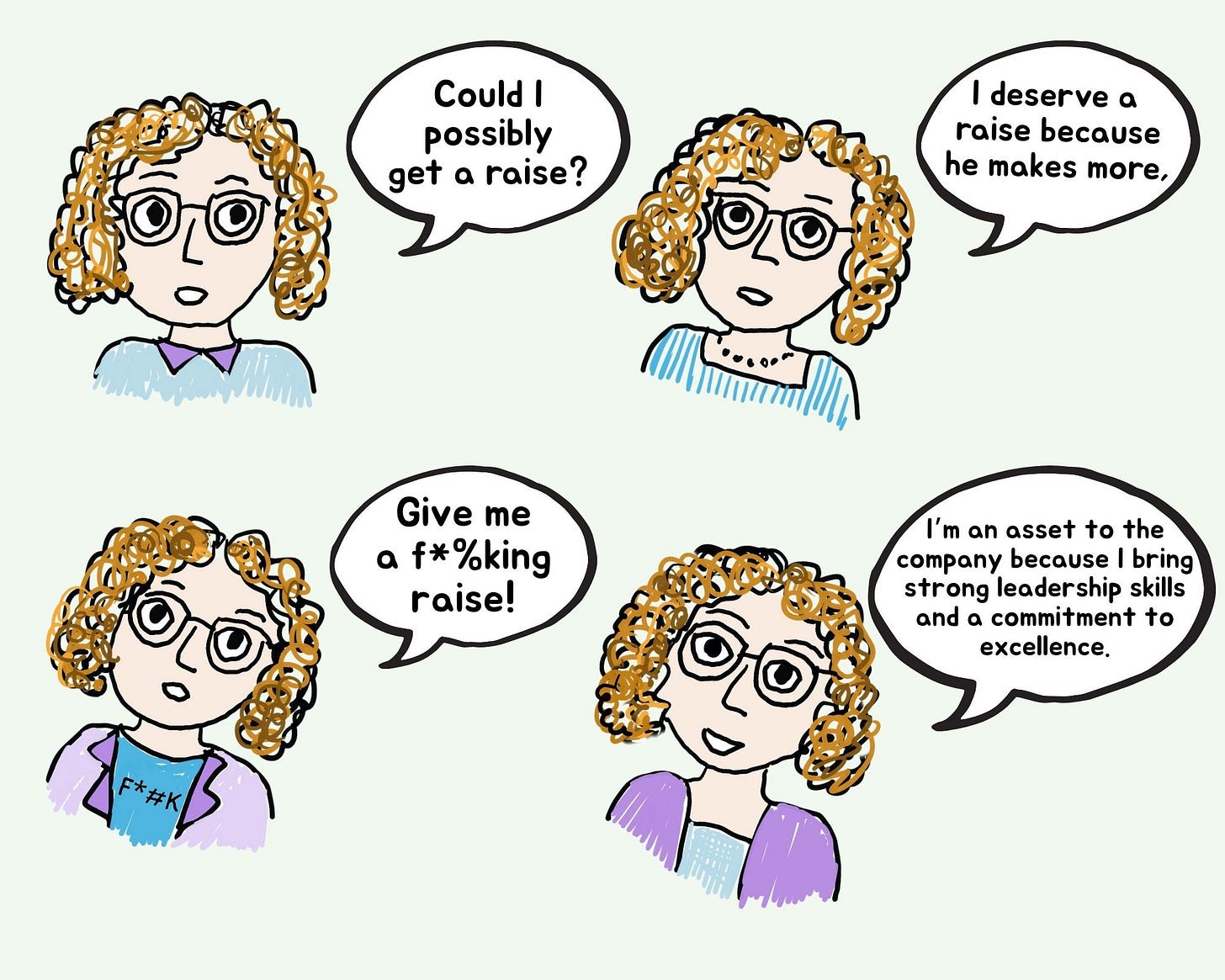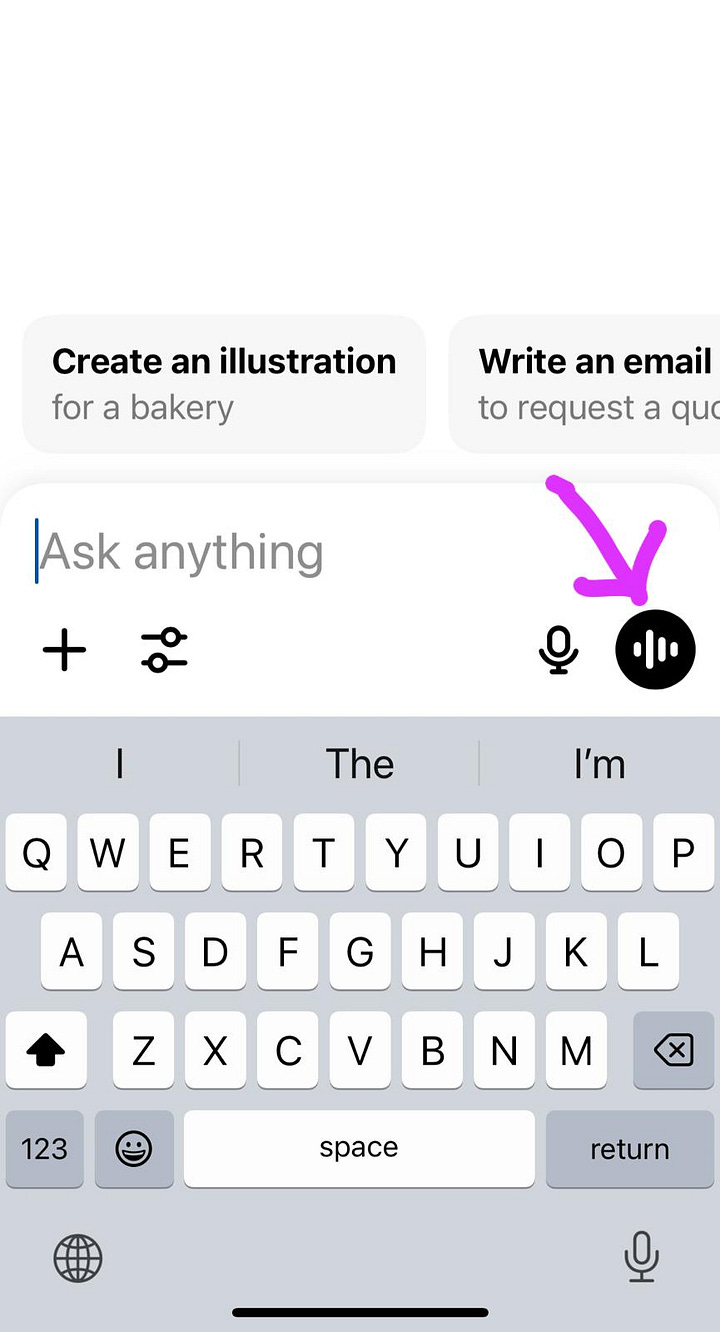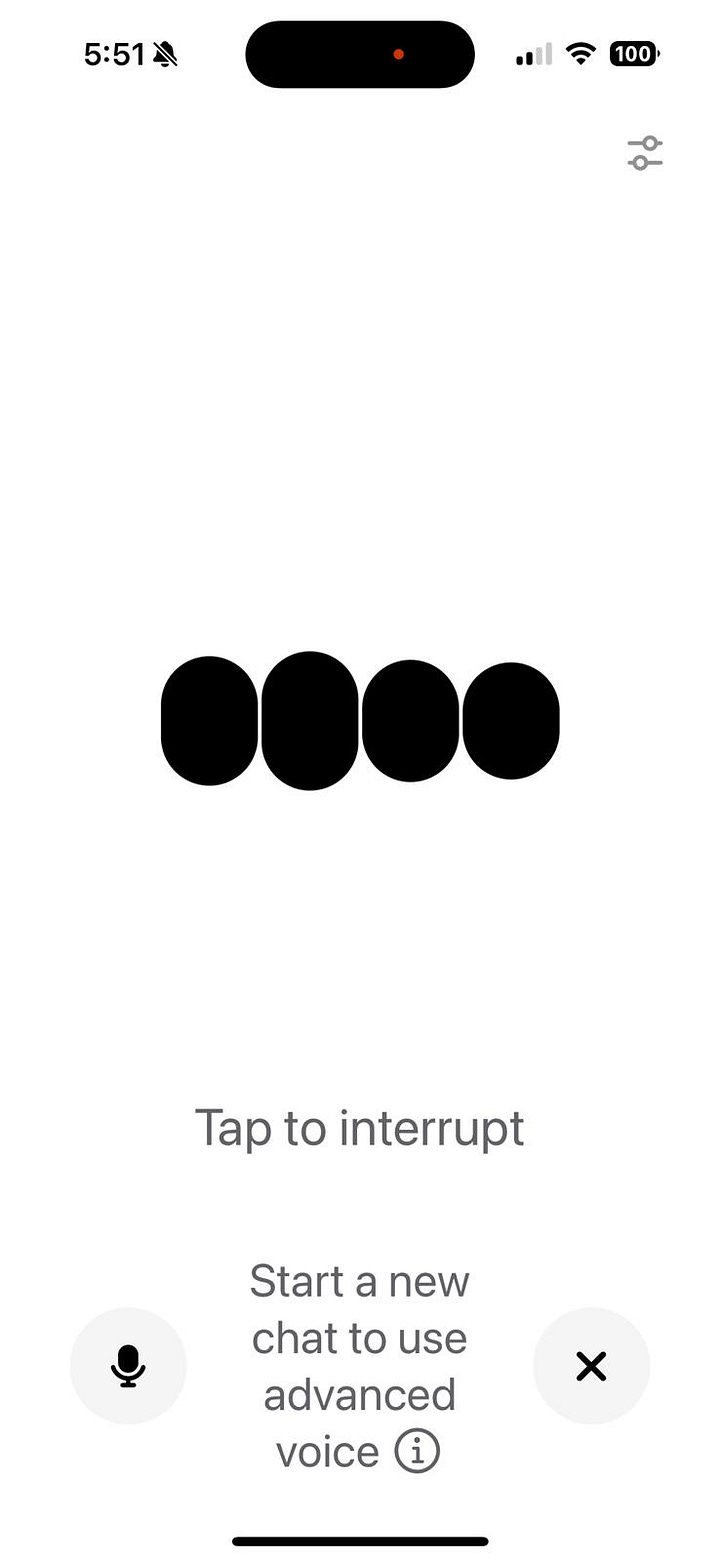The $24K Raise I Got—And Why I’m Still Mad About It
How to beat the bias and earn like the Steves
TL;DR: Women face a negotiation double-bind—when we don't negotiate, we lose money; when we do negotiate assertively, we face backlash men don't experience. The solution isn't being "tougher" or making yourself smaller. It's strategic clarity: using precise, fact-based language that sidesteps gender expectations while still advocating for what you deserve.
Hey there 👋,
Years ago, I found out my boss planned to pay a less experienced man more than me—for the same role.
I was a middle school principal making a decent salary at an independent school. My boss, the Head of School, made a controversial decision to appoint a new high school principal rather than conduct a search. He appointed the college counselor, a young guy with zero experience as a division leader.
When he called me into his office to tell me his decision, I had one thought: "He's totally going to pay him more than me."
I took a deep breath and said, "I respect your right to make whatever decisions you want about the school. But he has less experience than I do, so I really hope you’re not paying him more than you pay me.”
His eyebrows shot up. The next day I got an email: I was getting a $24k raise.
On the one hand, I was jubilant. I had asked for it, and I had gotten it. On the other hand, I was livid. He totally was going to pay a man more than he was paying me, despite my seniority. I only got fair compensation because I anticipated the inequity and spoke up. It worked—but I knew it shouldn’t have to.
That's the negotiation tax women pay — having to explicitly ask for what we’ve already earned through experience and performance.

The Problem Pattern
For years, we've been told that women earn less because we don't negotiate enough or negotiate effectively. The gender pay gap persists, they say, because women are too "tame" in negotiations.
But research published in the Journal of Applied Psychology reveals a more complicated reality. Researchers examined over 1,200 negotiation exercises and found something surprising: gender differences in outcomes only emerged in one specific situation. When women negotiated assertively they were penalized. Even when they used the same strategies as men.
Why? One word: backlash.
When women behave assertively in negotiations, they face negative reactions that men simply don't experience for the same behavior.
The real problem isn't our negotiation skills—it's the double-bind we face:
If we don't negotiate assertively → we leave money on the table
If we do negotiate assertively → we face backlash that undermines our efforts
This isn't a skill deficit. It's a perception problem.
How Most People Try to Solve It (And Why It Fails)
The standard advice we've all received misdiagnoses the problem:
“You need negotiation training” (Assumes it’s a skill issue.)
“Be more confident and direct” (Ignores the backlash women face.)
“Do your research. Know your worth” (Helpful—but bias still wins.)
“Just ask for what a man would ask for” (As if we get the same response 🙄)
These approaches fail because they treat the symptom (negotiation outcomes) rather than the disease (gender bias).
And the so-called “alternative” advice isn’t much better. Instead of fixing bias, it teaches women to work around it:
Soften your tone.
Frame requests in terms of team benefit.
Say “we” instead of “I.”
As researcher Jennifer Dannals puts it: “I dislike advising women to make themselves smaller to get a better outcome.” But she’s honest about the bind: “Sometimes you want to be more strategic because you care about the outcome.”
The Solution: Strategic Clarity, Not Aggression
The real power move isn’t being tougher—it’s being clearer in systems built to keep you uncertain.
Here's my framework for negotiation that cuts through the double-bind:
Reframe the goal: Negotiation isn't combat—it's clarification
Structure over willpower: Advocate for transparent processes, not just for yourself
Lead with facts, not feelings: Remove the emotional tax from your requests
Try these power moves:
Instead of: "I deserve a raise because I've worked really hard."
Try: "Based on market research and the additional responsibilities I've taken on, an adjustment to $X would align my compensation with my current contributions."
Instead of: "I'd like more money, but I understand budgets are tight."
Try: "I've prepared documentation of the three major projects I led that increased department efficiency by 22%. I'd like to discuss how my compensation can reflect this impact."
Instead of: "I need more support on this project."
Try: "To deliver this project successfully by the deadline, I'll need: (1) dedicated time from Sarah on the analytics portion and (2) a budget increase of $5,000 for the additional scope."
Notice how none of these approaches are about being "tough" or "aggressive." They're about being precise, prepared, and clear. That’s exactly what I did with my boss. I didn’t raise my voice—I raised a point. And that clarity is what got me the $24,000 raise I already deserved.
Power Practice for the Week
Before your next high-stakes conversation, try this low-stakes simulation using AI.
Here’s how:
Open ChatGPT or Claude (the free versions work fine).
Paste this prompt:
“I need to role-play a negotiation. You'll play the role of my [boss/client/counterpart]. I'm asking for [raise/promotion/resources/deadline extension]. Respond as they would, with realistic objections. Be challenging, but fair.”Practice for 3–4 exchanges, focusing on clarity, not combat.
Then ask:
“What patterns did you notice in my negotiation style? How could I be more effective?”
You may be thinking — but if I’m writing, it’s not the same. This is true. But if you download the ChatGPT app, you can actual speak to it and it will reply. It’s the perfect way to role-play any negotiation/difficult conversation. I added screenshots below. On the left you’ll see what icon to press. On the right is what it will look like.


Go ahead and practice out loud! And remember, the goal isn’t to win—it’s to notice what you default to. Do you over-explain? Soften your language? Rush to justify? This practice helps you sharpen your approach before the stakes are real.
Think of it as your pocket coach.
The Short of It ⚡️
The research is clear: women don’t struggle with negotiation because we lack skill. We struggle because assertiveness often triggers backlash.
The answer isn’t to act like a man—or to shrink ourselves to be more “likeable.” It’s to lead with strategic clarity: facts, structure, and preparation.
Advocating for yourself isn’t selfish. It’s survival in a system built to undervalue your contributions. I didn’t get a $24,000 raise because my boss had a change of heart. I got it because I named what I was worth—clearly, calmly, and directly.
With you all the way,
Kara
P.S. Next week: Ever feel like you're running a marathon in high heels while everyone else gets sneakers? I'll share practical resilience strategies I've collected over the years that have kept me and other women going when the constant push for fair treatment gets exhausting. Plus, what to do in those moments when you just want to throw in the towel.




Excellent!